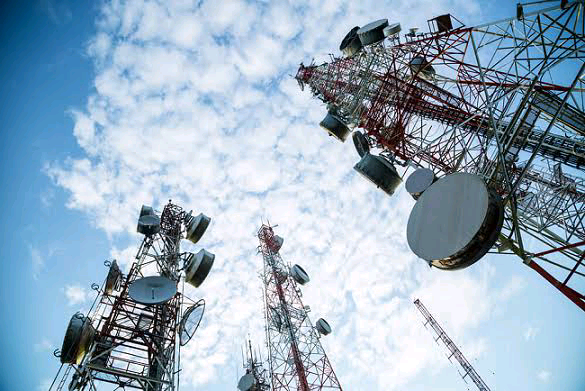Telcos Spending On Diesel Rises By 35%, Hits N429bn
The cost of powering Nigeria’s communications network rose by 34.57 per cent to N429.43bn in 2023 as diesel prices soared.
In 2023, telecommunication companies spent about N429.43bn on fueling base stations, an increase of 34.57 per cent from the N319.11bn they spent in 2022.
This is as diesel prices soared in 2022 and remained at an elevated level in 2023.
In 2022, the telecoms industry noted, “The telecommunication industry has been heavily financially impacted following Nigeria’s economic recession in 2020 and the effect of the ongoing Ukraine/Russia crisis. This has resulted in an increase in energy costs (which constitutes an appreciable 35 per cent of ALTON’s members’ operating expenses).”
Since then, diesel prices have risen from N288.09 per litre in January according to data from the Nigerian Bureau of Statistics to N1126.69 per litre in December 2023.
Based on industry data, telecommunication operators use an average of 40 million litres of diesel per month to power telecom sites.
As of the end of 2022, the Nigerian Communications Commission (NCC) disclosed that there was a total of 34,862 towers and 127,294 Base Stations in the country.
In 2022, the telecoms industry spent N2.09tn on operational costs (a large percentage of this cost is diesel tied).
Since 2022, telecom operators have been lamenting about the negative impact of rising diesel costs on the business. They made it the basis of a tariff review request to the NCC in 2022.
In 2022, the Association of Licensed Telecoms Operators of Nigeria asked that the NCC allow it to raise tariffs by 40 per cent because of the surge in the price of diesel.
It said, “Given the state of the economy and the circa 40 per cent increase in the cost of doing business, we wish to request for an interim administrative review of the Mobile (Voice) Termination Rate for Voice; Administrative Data floor price and cost of SMS as reflected in extant instruments.”
The floor price of calls would have jumped from N6.4 to N8.95 and the price cap of SMS from N4 to N5.61 if the request was approved.
When prices of diesel continued to soar in 2023, the Head of Operations, ALTON, Gbolahan Awonuga, said “Power is key. It determines everything. Even though there is an increase in virtually the price of everything in the economy, telecom tariff remains the same. This means that there are a lot of difficulties. Revenue has reduced and prices of other inputs have changed, but tariffs are still the same.”
The President of ALTON, Gbenga Adebayo, would also say, “For our industry to remain sustainable, our prices have to reflect the cost of production. This goes without saying that we will also review rates at the appropriate time after consultation with all the stakeholders to reflect the current cost of inputs.”
In an appeal to the House of Representatives, telco decried how rising inflation, currency devaluation, sustained difficulty in accessing foreign exchange at an affordable rate, rising energy costs, the rising cost of securing telecom facilities and field personnel in the face of worsening insecurity, and more are negatively impacting their businesses.
The telcos said, “Notwithstanding the foregoing, the pricing regulatory framework has not been reviewed to account for changes in macroeconomic conditions and reflect current cost profile of operators. As such, ALTON’s members are unable to price services at a sustainable rate.
“Consumer prices in other sectors have seen a steep rise over the last six years as they adjust to reflect macroeconomic realities.”
The rise in the cost of diesel has been blamed on foreign exchange challenges, rising cost of crude in the international market, and the implementation of a 7.5 percent VAT on the product.
In an interview oil marketers said, “The reason for this is simple: It’s basically because of forex and the rising cost of crude in the international market. So, forex, particularly, is a big challenge.”
Punch news/Olusola Akintonde


Comments are closed.